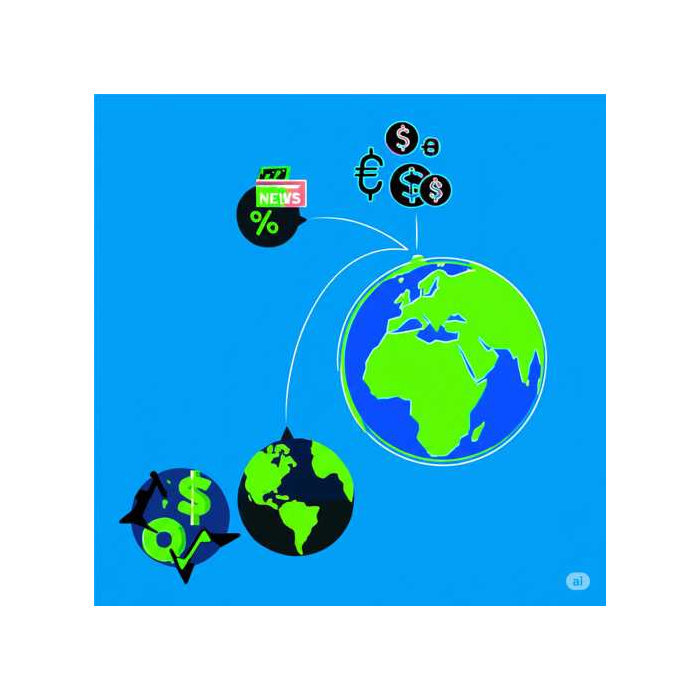The Unpredictable Hand | How Geopolitical Events Reshape Exchange Rates
The foreign exchange market, the largest and most liquid financial market globally, is a constant tug-of-war between various forces. While fundamental economic indicators like inflation, GDP, and interest rates are typically seen as the primary drivers of currency values, geopolitical events often emerge as sudden, powerful influencers that can override conventional analysis and trigger dramatic volatility.
What exactly are geopolitical events, and how do they wield such significant power over exchange rates?

What Are Geopolitical Events?
Geopolitical events encompass a wide range of political, economic, and social occurrences that have international implications. They can be:
- Political Instability: Elections, coups, civil unrest, changes in leadership, major policy shifts, or widespread protests within a country.
- Conflicts & Tensions: Wars, military conflicts, heightened diplomatic tensions between nations, or terrorist attacks.
- Trade Disputes & Sanctions: Tariffs, trade wars, new trade agreements, or economic sanctions imposed by one country or bloc on another.
- Natural Disasters & Pandemics: Large-scale natural disasters (earthquakes, floods, hurricanes) or global health crises that severely impact economies and supply chains.
- Geopolitical Alliances & Shifts: The formation or dissolution of international alliances, or major realignments in global power dynamics.
These events introduce uncertainty and risk, which are key ingredients for currency fluctuations.
How Geopolitical Events Impact Exchange Rates
The impact of geopolitical events on exchange rates primarily funnels through a few key channels:
-
Investor Confidence and Capital Flows:
- Flight to Safety: When geopolitical tensions escalate, investors tend to flee "risky" assets and currencies associated with unstable regions. They seek out traditional safe-haven currencies like the US Dollar (USD), Japanese Yen (JPY), and Swiss Franc (CHF). This increased demand for safe havens strengthens their value, while the currencies of affected or perceived-to-be-at-risk nations weaken due to capital outflow.
- Investment Deterrence: Political instability or the threat of conflict can deter foreign direct investment (FDI) into a country, as investors perceive higher risks to their capital. Reduced investment inflows weaken demand for the local currency.
-
Economic Outlook and Stability:
- Disruption to Trade and Supply Chains: Trade wars or conflicts can disrupt international trade routes, impose tariffs, and break global supply chains. This can harm a country's exports, reduce its GDP, and negatively impact its current account balance, all of which put downward pressure on its currency.
- Impact on Key Industries/Commodities: Geopolitical events often have a direct impact on commodity prices, particularly oil and gas. Countries that are major exporters of these commodities (like Canada with CAD or Australia with AUD) will see their currencies strengthen when prices rise due to supply concerns. Conversely, importing nations (like Eurozone countries) may see their currencies weaken due to higher energy costs and inflationary pressures.
- Fiscal and Monetary Policy Responses: Governments and central banks often react to geopolitical events with policy changes. A government might increase spending (fiscal policy) to counter economic fallout, potentially leading to higher debt and a weaker currency. Central banks might adjust interest rates (monetary policy) to stabilize the economy, which directly impacts currency attractiveness. For example, a central bank might cut rates to stimulate an economy hit by a crisis, making its currency less appealing to foreign investors.
-
Market Sentiment and Perception:
- Uncertainty and Volatility: Geopolitical events are inherently unpredictable. This uncertainty breeds volatility in the markets. Traders react quickly to breaking news, leading to sharp, sudden price swings as market participants adjust their positions based on new information and speculation.
- Long-Term Shifts in Global Influence: Major geopolitical realignments, such as the strengthening of new alliances or challenges to dominant reserve currencies, can have profound long-term impacts on exchange rate regimes and global financial flows.
Case Studies in Impact:
- Brexit (GBP): The UK's decision to leave the European Union caused prolonged uncertainty and significant depreciation of the British Pound (GBP) against major currencies, as investors worried about future trade relationships and economic stability.
- US-China Trade War (USD, CNY, AUD, NZD): The imposition of tariffs and escalating trade tensions between the US and China led to increased volatility in the USD and Chinese Yuan (CNY). It also impacted commodity-linked currencies like the Australian Dollar (AUD) and New Zealand Dollar (NZD) due to their exposure to Chinese demand.
- Russia-Ukraine Conflict (EUR, RUB, CHF, JPY): The conflict triggered a surge in energy prices, heavily impacting the Eurozone economy due to its reliance on Russian energy imports, leading to Euro weakness. The Russian Ruble (RUB) saw extreme volatility, while safe-haven currencies like the CHF and JPY experienced periods of strength.
Navigating Geopolitical Risk in Forex Trading
For forex traders, understanding and reacting to geopolitical events is critical. While predicting them is often impossible, here's how to manage their impact:
- Stay Informed: Follow reliable global news sources and economic calendars closely. Be aware of potential hotspots, elections, and upcoming international dialogues.
- Understand Interconnectedness: Recognize that an event in one region can have ripple effects across multiple currency pairs due to global trade and financial linkages.
- Risk Management is Paramount: Use stop-loss orders diligently. Volatility spikes during geopolitical events can lead to rapid price movements, making robust risk management essential to protect your capital.
- Consider Safe Havens: In times of high geopolitical uncertainty, consider shifting towards or monitoring safe-haven currencies.
- Avoid Trading Around High-Impact Events (Unless Experienced): If you're a beginner, it's often wise to avoid opening new trades or even close existing ones just before or during major geopolitical announcements, as the volatility can be extreme and unpredictable.
Geopolitical events are a constant, albeit often unpredictable, force in the forex market. By appreciating their multifaceted impact on investor confidence, economic stability, and market sentiment, traders can better navigate periods of uncertainty and potentially capitalize on the resulting shifts in exchange rates.
Popular Tags